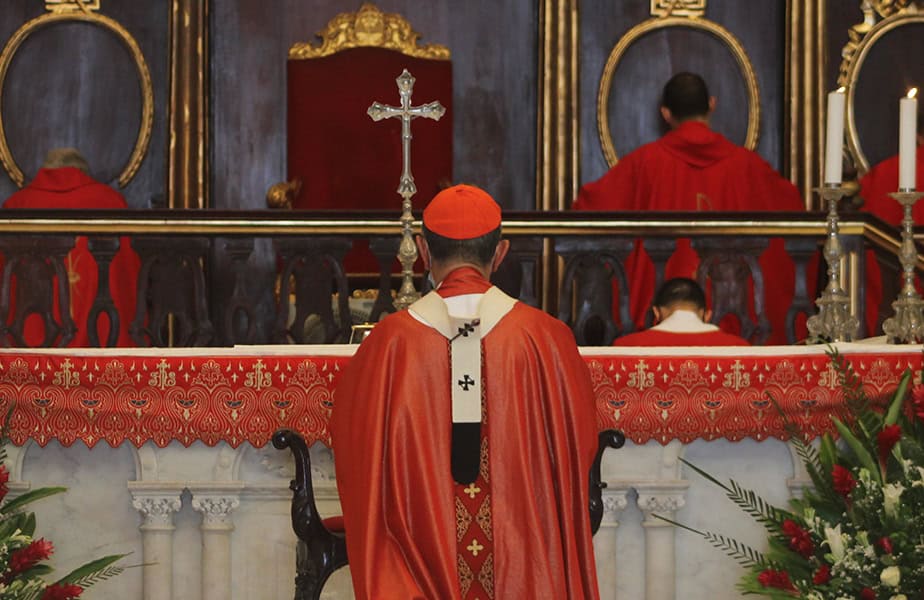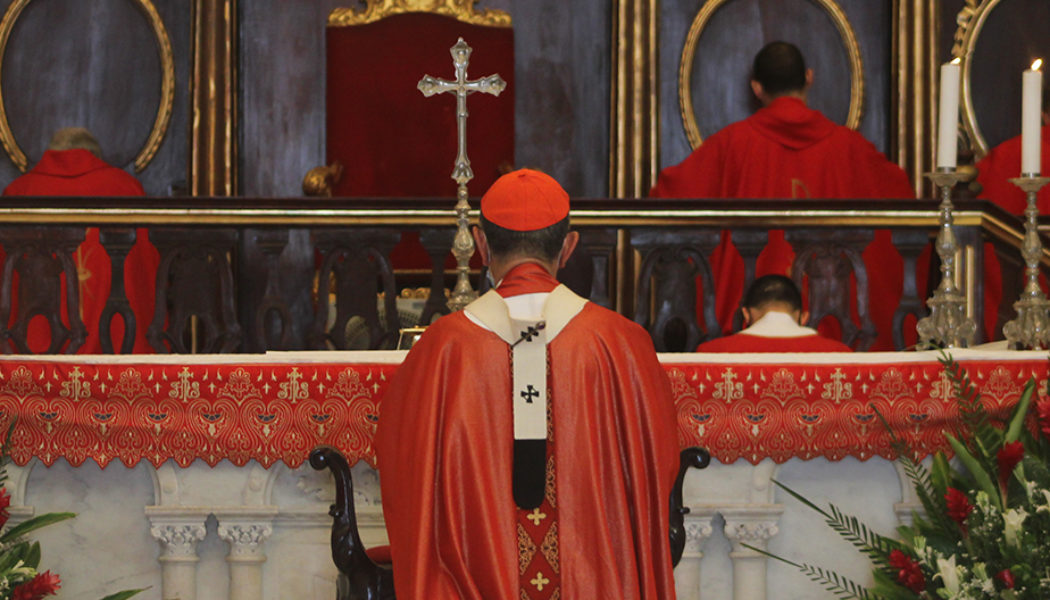
At the “information meeting” of the College of Cardinals this past Aug. 29-30, there was considerable agreement that evangelization is Catholicism’s prime imperative for the 21st century — a consensus understandably gratifying to the author of a 2013 book with the then-provocative title, Evangelical Catholicism. Within that consensus, however, serious questions remain to be resolved. Surveying the world Catholic scene today, and considering the past decade of ecclesiastical air turbulence, there are four “what” questions and one “when” question to be settled, if the consensus on the necessity of evangelization is to be fruitful in drawing others to, or back to, Christ.
The first “what” question is Christological: Can the Church evangelize if it does not propose Jesus Christ as the definitive expression of God’s self-revelation to humanity and the unique savior of the world? That was the unambiguous teaching of the Catholic Church from Peter’s sermon in Acts 4:12 through the declaration Dominus Iesus (The Lord Jesus), issued by the Congregation for the Doctrine of the Faith with the authoritative approval of Pope John Paul II during the Great Jubilee of 2000. Does that conviction remain the foundation of Catholic evangelism and catechesis today? If so, how is the Church to understand the 2019 Abu Dhabi Declaration, signed by Pope Francis, which affirms that the “plurality” and “diversity” of religions in the world are “willed by God”? Is there a tension here, perhaps even a contradiction, that requires clarification?
The second “what” question is ecclesiological: Is the Catholic Church a universal Church with local ecclesial expressions, or is the Catholic Church a loose federation of local Churches, each with its own doctrinal and moral “path” (to borrow a term from Germany)?
World Anglicanism is an example of the latter; and the sorry condition of the Anglican Communion, which finds it difficult to even gather a meeting of its constituent members, is a cautionary tale. Moreover, aren’t the many challenges of evangelization in the 21st century magnified, even exacerbated, when local Churches proclaim different gospels and different ways of life? What does institutional German Catholicism, which appears determined to reinvent itself as the Church of Woke, have to offer to the Church’s evangelical efforts in Africa and Asia? How can a New Model Catholicism that is barely distinguishable from secular progressivism re-evangelize the post-Christian parts of the North Atlantic world? What happens to evangelization when the Church loses its tether to “one Lord, one faith, one baptism” (Ephesians 4:5)?
The third “what” question involves the architecture of the moral life: Does the 1993 encyclical Veritatis Splendor (The Splendor of Truth), which affirms that some acts are “intrinsically evil” in and of themselves, properly identify the biblical and theological foundation on which Catholic moral teaching rests? Or does the Catholic Church now embrace the moral-theological theory known as “proportionalism,” which understands the moral life as an ongoing negotiation in which the individual conscience navigates among unstable moral norms, changing social standards and personal intentions? Can the Church evangelize if it cannot say, with compassion but also Gospel conviction, that this is the way of righteous living, not that, because some actions are just wrong, period?
The fourth “what” question touches Vatican diplomacy: How can the Church evangelize, especially in cultures and polities hostile to Christianity, if the Vatican seems unwilling to defend its own? The path of “dialogue” taken in Hong Kong and China, with Russia, and in the face of vicious anti-Catholic persecution in Cuba, Venezuela and Nicaragua has produced few, if any, positive results. What is the effect on future evangelization of the Vatican’s reluctance to defend publicly both individual Catholics (like the imprisoned Jimmy Lai in Hong Kong and the imprisoned Bishop Rolando Álvarez in Nicaragua) and the institutional freedom of the Church (as in, for example, the appointment of bishops in China)? Can evangelization succeed if efforts to “dialogue” with persecutors muzzle the Church’s prophetic voice in speaking truth to worldly power?
As for the “when” question, more than one cardinal in Rome last month asked how a robust program of evangelization can be conducted if the Church is constantly in meetings — whether diocesan synods, national synods, continental synods or global synods. Being Pope Francis’s Church “permanently in mission” is not easy to square with being a Church permanently in meetings. And that problem of prudent time-management is compounded when the meetings in question are conducted on the premise that little or nothing is stable in a Catholicism of “paradigm shifts.”
– Advertisement –
Evangelization, to be sure: but with what message and by what means?
Join Our Telegram Group : Salvation & Prosperity









